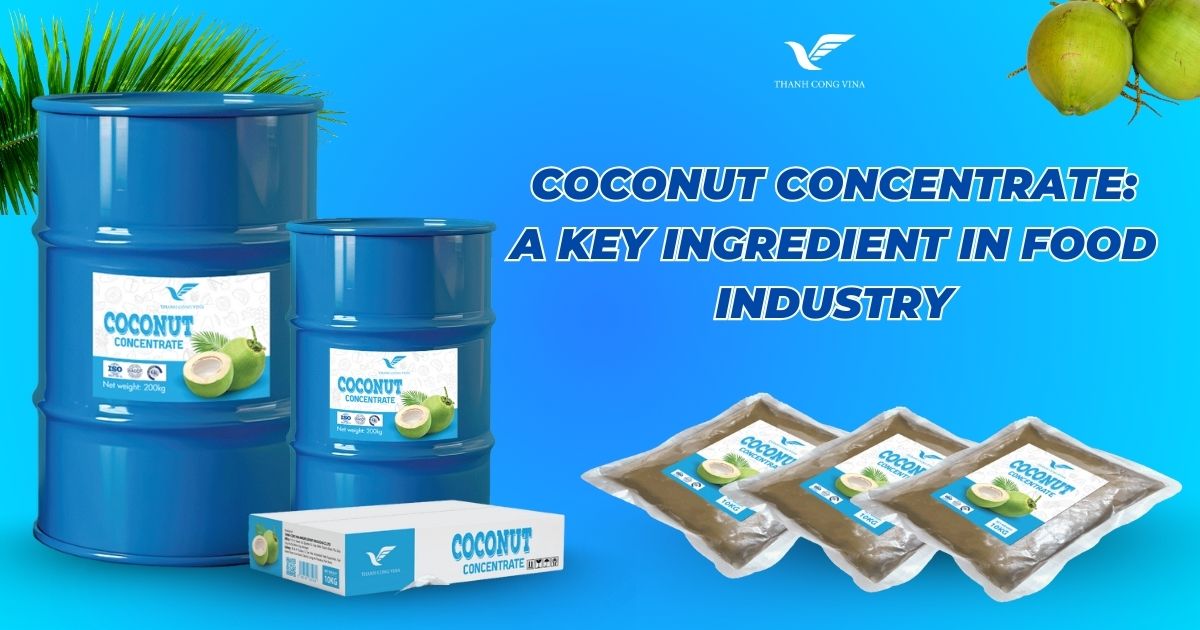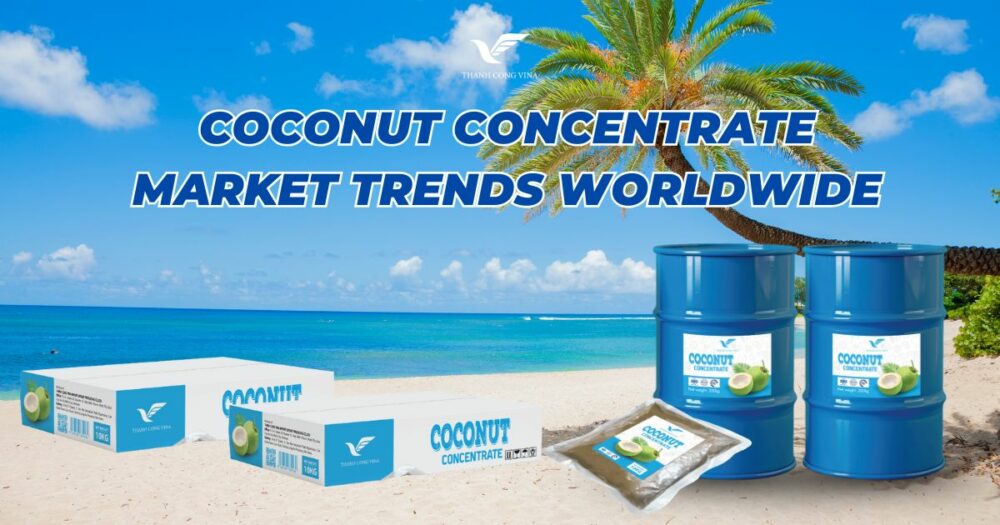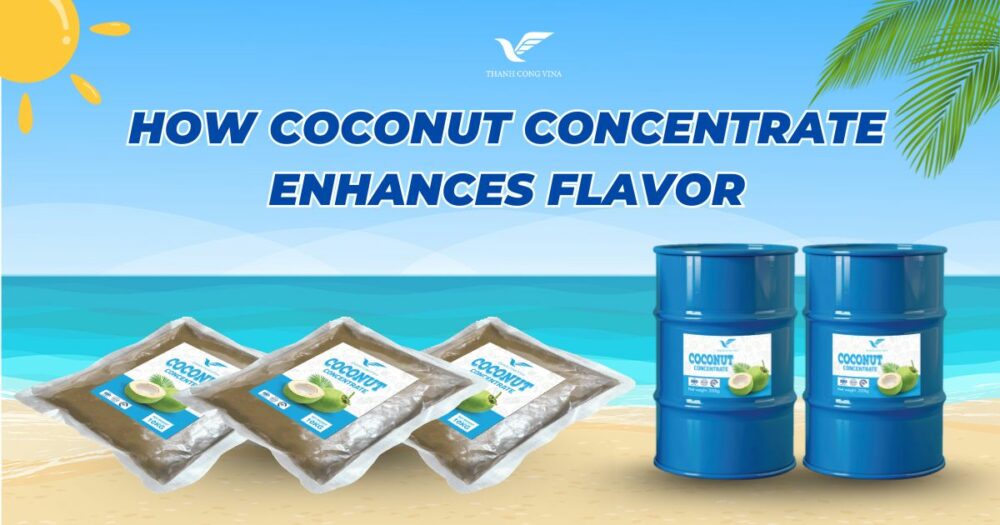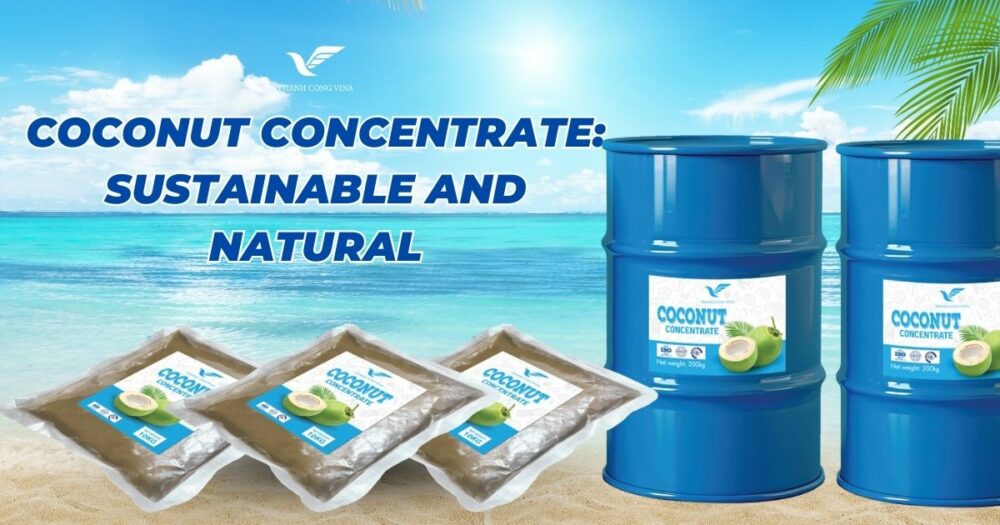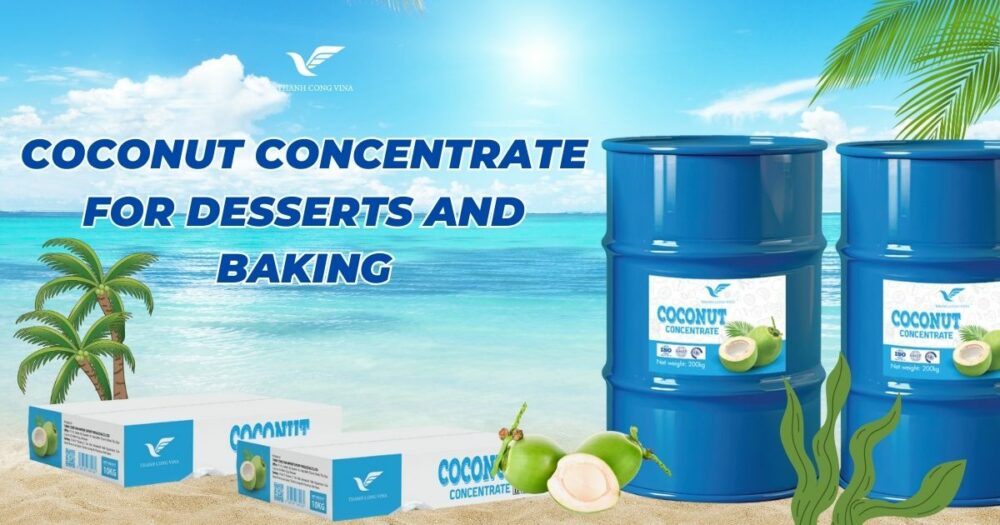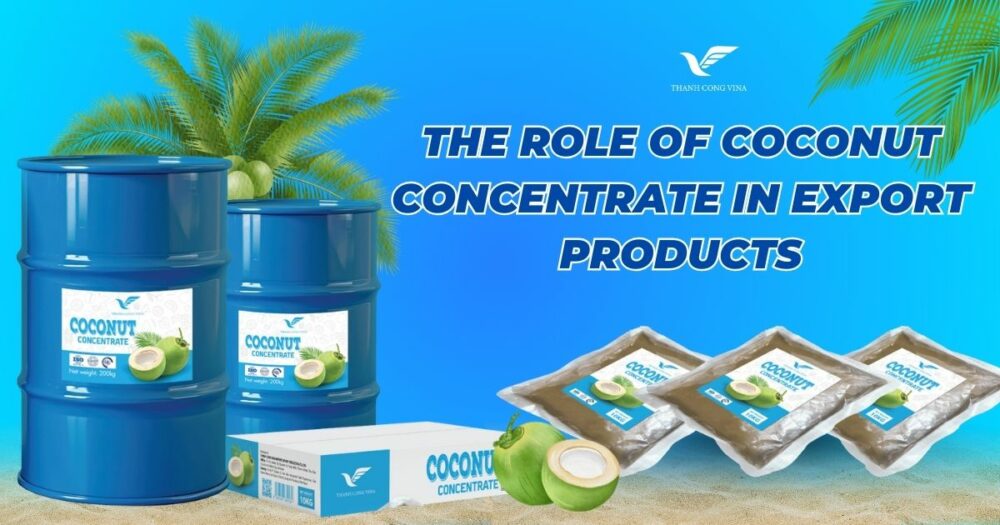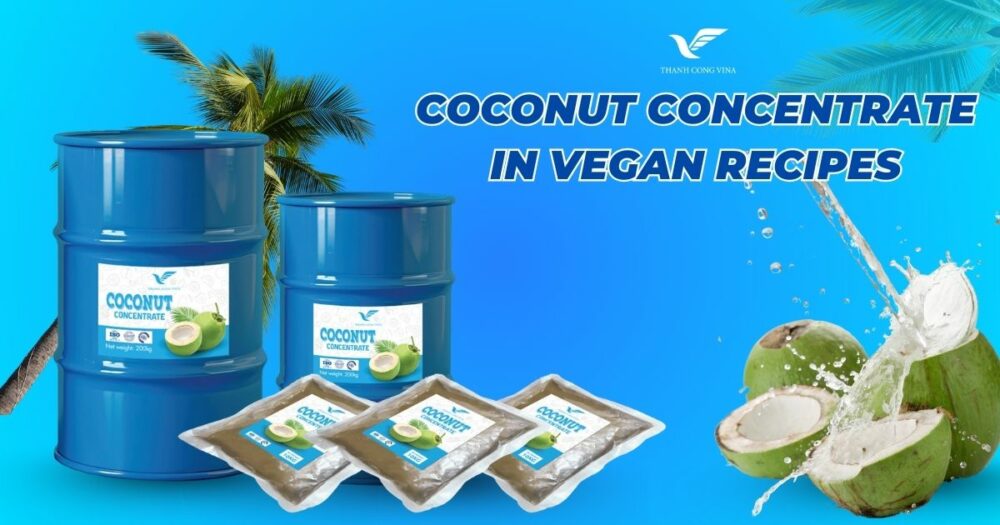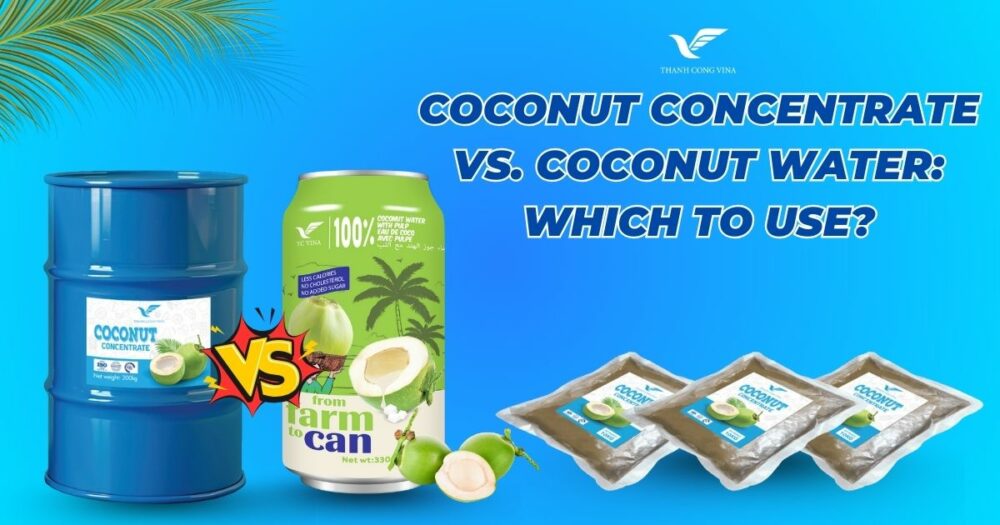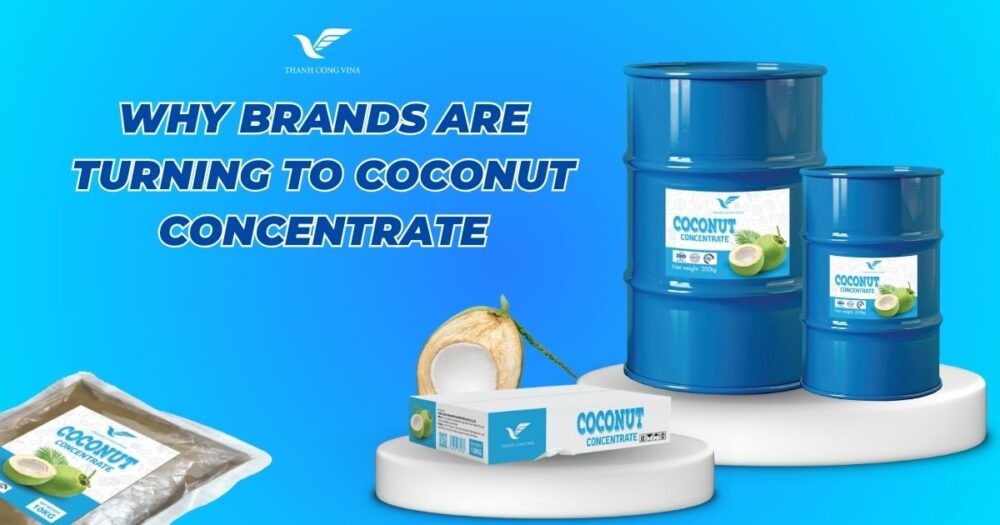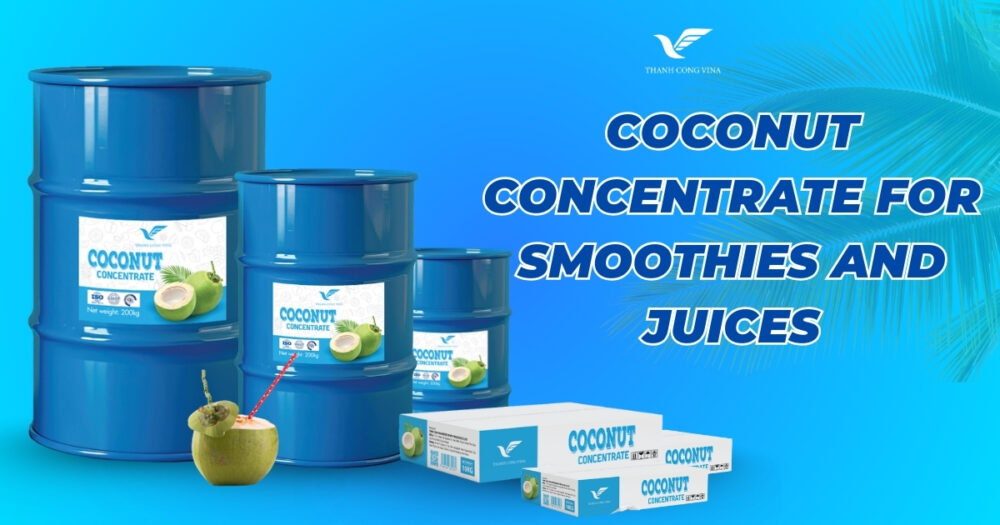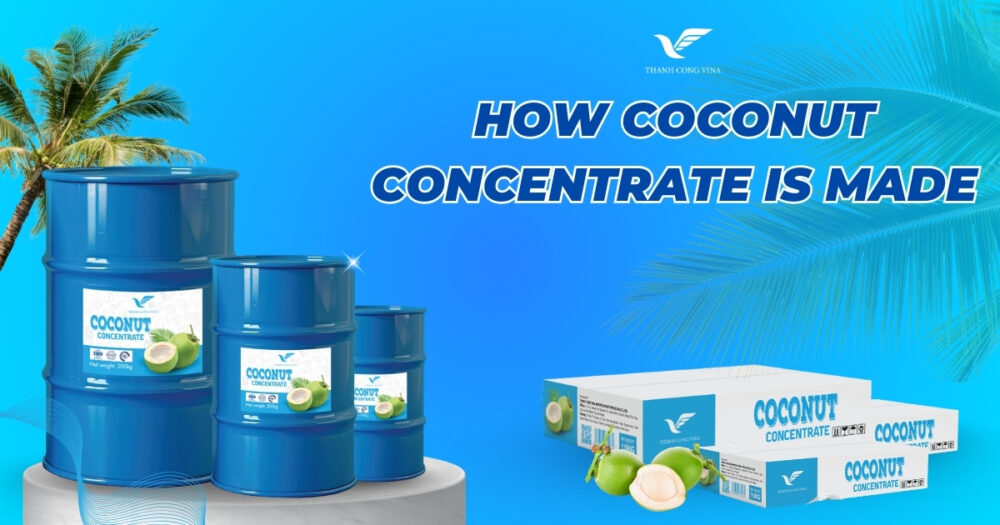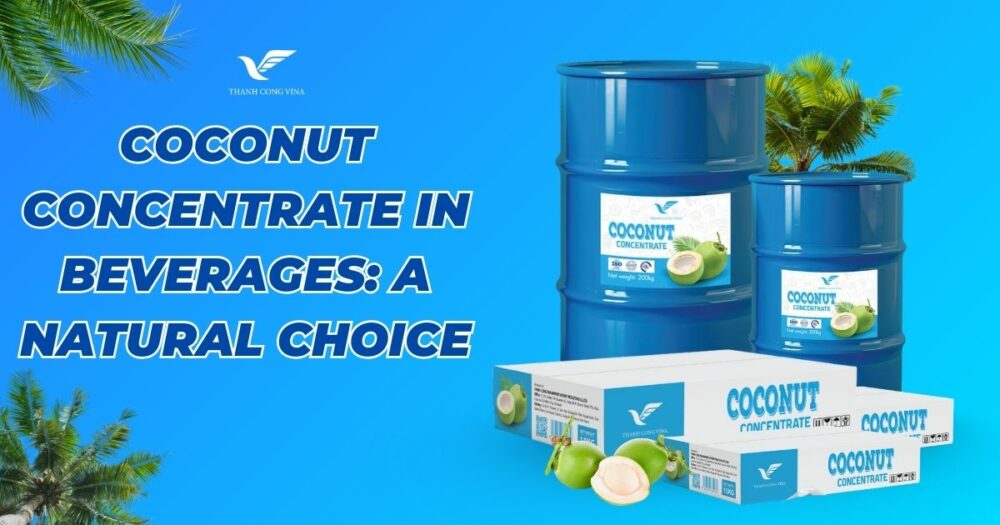The global food and beverage industry has witnessed a strong demand for natural, plant-based, and functional ingredients in recent years. Among the many tropical innovations, coconut concentrate has emerged as a versatile and valuable ingredient. Known for its rich flavor, natural sweetness, and health-boosting properties, coconut concentrate has secured a vital role in various food categories, ranging from beverages and desserts to sauces, snacks, and even nutrition supplements.
In this comprehensive guide, we will explore what coconut concentrate is, how it is made, its nutritional profile, its applications in the food industry, and why it continues to grow in popularity as a clean-label and multifunctional ingredient.
What Is Coconut Concentrate?
Coconut concentrate is a natural product derived from the white flesh of mature coconuts. Through a process of grinding, extracting, and concentrating, the coconut meat is transformed into a dense and creamy form. Unlike coconut milk or coconut cream, which are diluted with water, coconut concentrate offers a more intense flavor and thicker texture, making it a premium ingredient for manufacturers.
It is often referred to as “coconut cream concentrate” or “coconut paste” depending on regional terminology. Unlike coconut oil, which consists primarily of fats, coconut concentrate retains a wider spectrum of nutrients, including protein, carbohydrates, dietary fiber, and minerals.
Because of its concentrated nature, a small amount of coconut concentrate provides a strong coconut taste and creamy consistency, making it cost-effective and highly functional in large-scale food production.
How Coconut Concentrate Is Made
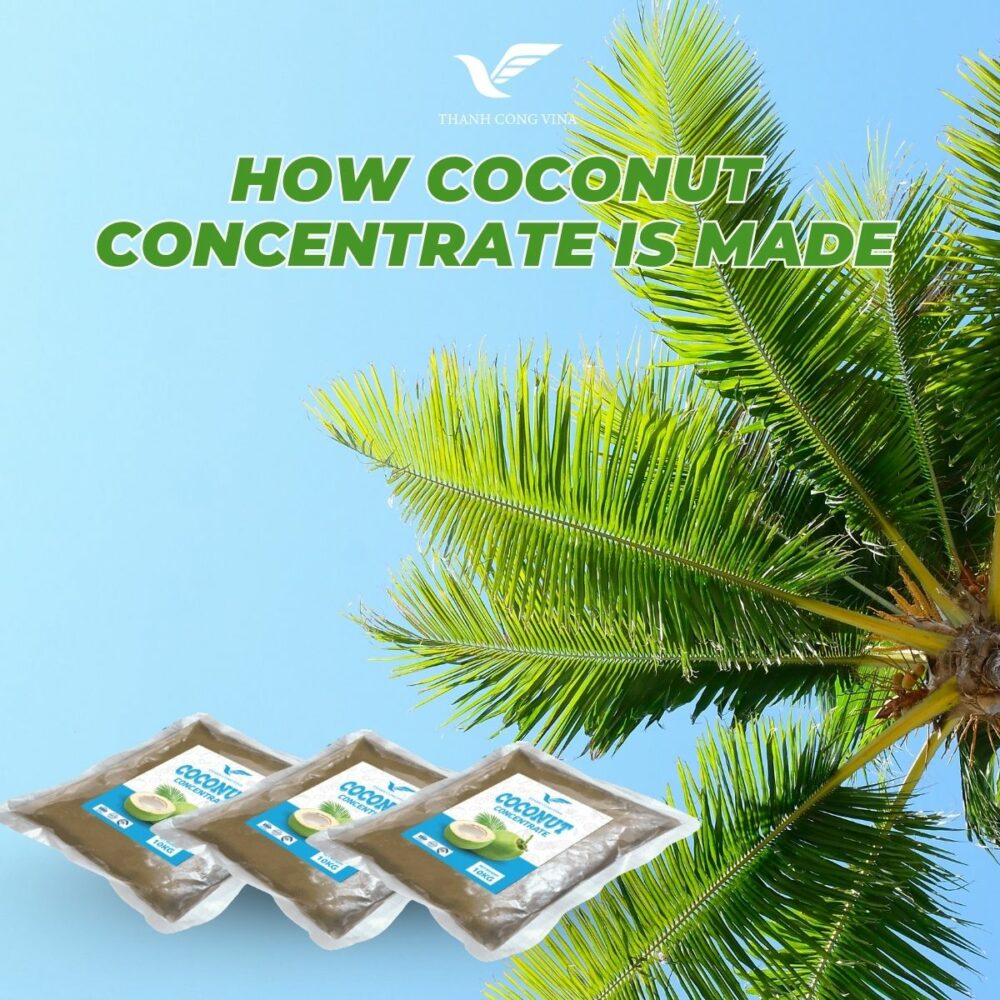
How Coconut Concentrate Is Made
The production of coconut concentrate involves several steps to preserve its natural quality while ensuring safety and consistency for industrial use. The process typically includes:
-
Harvesting Mature Coconuts
Only mature coconuts with high meat content are selected for concentrate production. -
Shelling and Washing
The hard shell is removed, and the coconut kernel is thoroughly washed to eliminate impurities. -
Grinding and Blending
The fresh coconut meat is ground into a fine paste. Depending on the manufacturer, additional processes may refine texture and consistency. -
Heating and Concentration
Controlled heat is applied to remove excess water while preserving natural flavor and nutrients. This creates a concentrated, creamy paste. -
Packaging
Coconut concentrate is then packed in aseptic or bulk containers for food industry applications, ensuring shelf stability and easy handling.
This process ensures that the product remains free from artificial additives while retaining its natural richness.
Nutritional Profile of Coconut Concentrate
One of the reasons coconut concentrate is highly valued in the food industry is its nutritional composition. While exact values depend on processing methods, typical nutritional highlights include:
-
Healthy Fats: Rich in medium-chain triglycerides (MCTs), which are metabolized quickly by the body for energy.
-
Carbohydrates: Provides natural sugars that contribute to flavor without the need for artificial sweeteners.
-
Protein: Contains small amounts of plant-based protein, adding to its versatility in functional foods.
-
Dietary Fiber: Offers fiber that supports digestive health and satiety.
-
Vitamins and Minerals: Contains potassium, magnesium, manganese, and trace B vitamins.
This combination of nutrients makes coconut concentrate not only flavorful but also beneficial in promoting energy, digestion, and metabolic balance.
Coconut Concentrate in the Food Industry
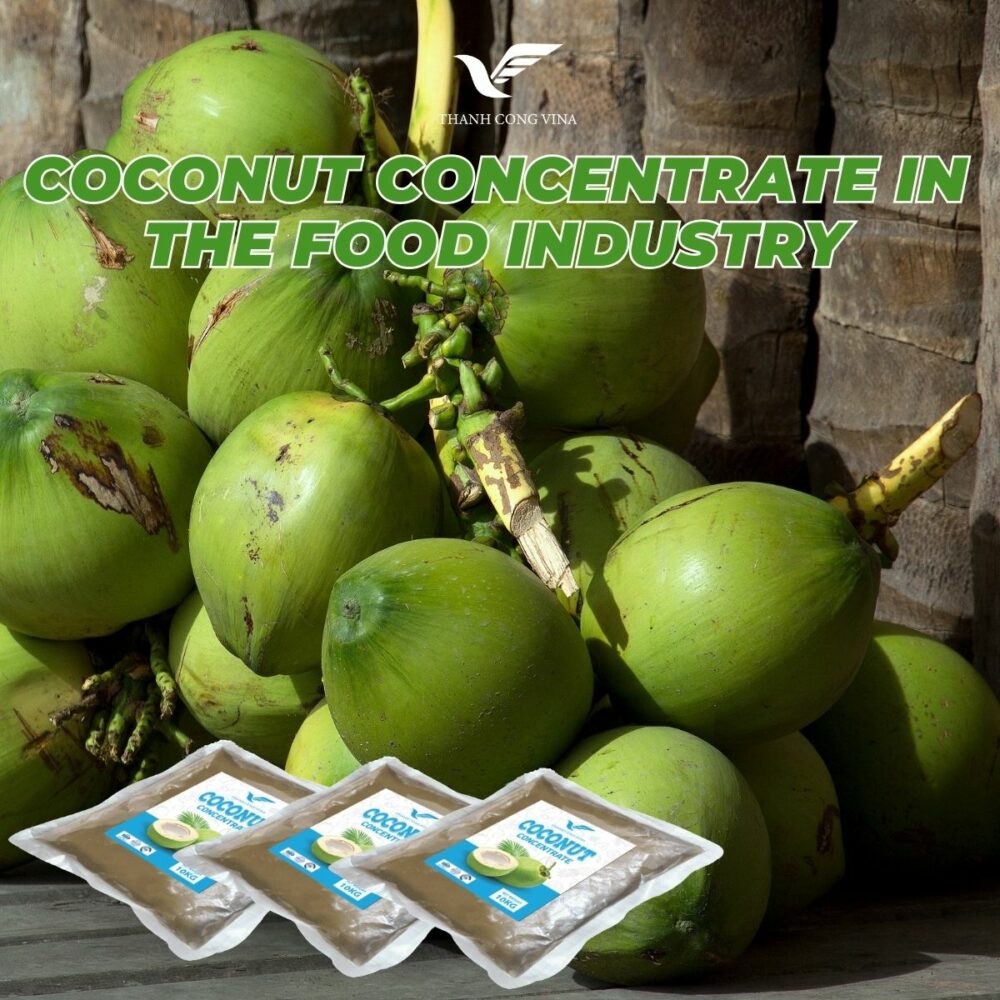
Coconut Concentrate in the Food Industry
Coconut concentrate has become a key ingredient in the modern food industry due to its ability to enhance taste, improve texture, and add nutritional value. Below are the main areas where it is widely used:
1. Beverages
Coconut concentrate is a popular choice for formulating beverages, such as:
-
Coconut-based smoothies
-
Ready-to-drink health shakes
-
Plant-based milk alternatives
-
Functional drinks with added electrolytes
Its creamy texture provides a natural thickness and smoothness, while its flavor enhances tropical-inspired products.
2. Dairy Alternatives
With the rise of vegan and lactose-free diets, coconut concentrate is widely used as a substitute for dairy in:
-
Ice creams and frozen desserts
-
Yogurt alternatives
-
Creamer for coffee and tea
-
Non-dairy whipping creams
It gives the richness of traditional dairy without allergens, making it suitable for consumers seeking plant-based options.
3. Baked Goods and Confectionery
Bakers and confectioners use coconut concentrate to enhance flavor, texture, and nutritional appeal in:
-
Cakes, cookies, and pastries
-
Chocolate fillings and coatings
-
Energy bars and protein snacks
-
Traditional sweets in Asian and tropical cuisines
Its natural sweetness often reduces the need for refined sugar.
4. Culinary Sauces and Curries
In savory applications, coconut concentrate is a staple for:
-
Curry bases and gravies
-
Stir-fry sauces
-
Soups and stews
-
Condiments and spreads
It provides a creamy base while balancing spices and herbs, making it an essential ingredient in both traditional and modern fusion cooking.
5. Health and Nutrition Products
The health food industry increasingly uses coconut concentrate in:
-
Meal replacement powders
-
Keto-friendly snacks
-
Sports nutrition products
-
High-energy health bars
Its MCT-rich fat content makes it particularly attractive for energy-boosting and weight management products.
Why the Food Industry Prefers Coconut Concentrate
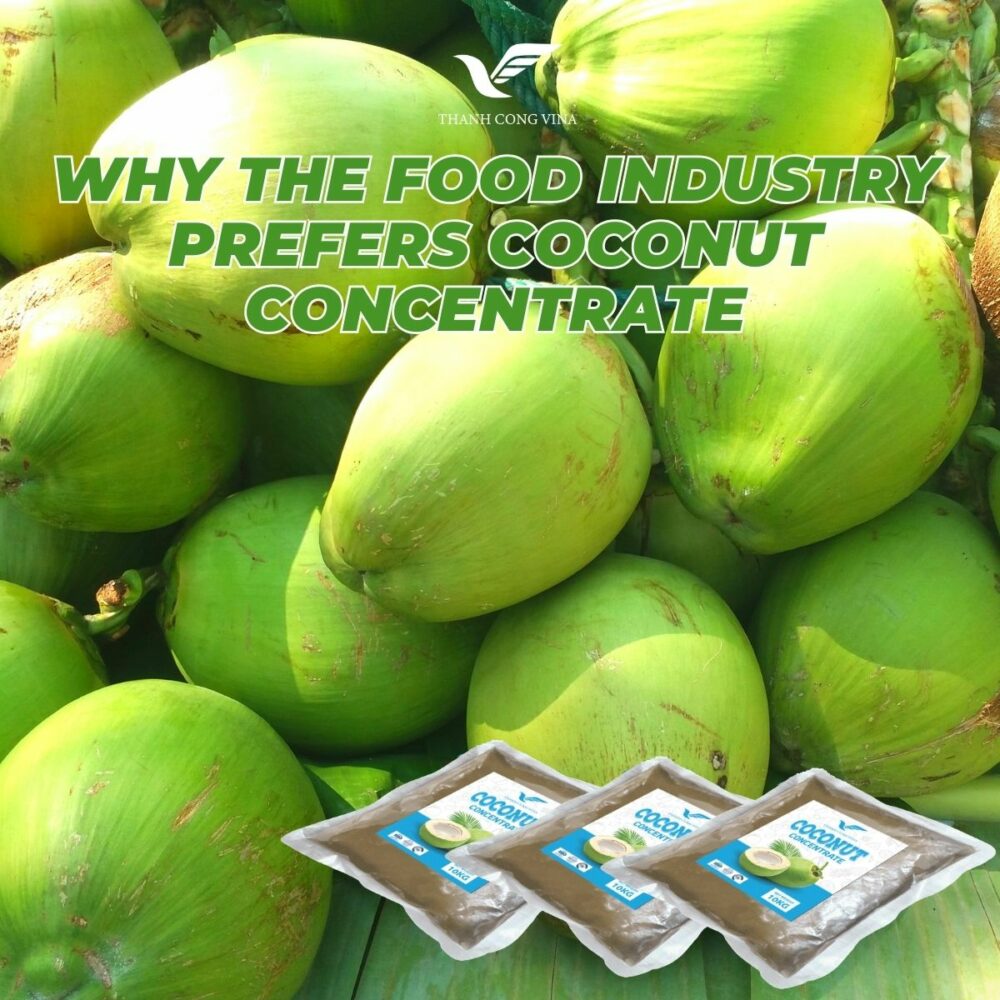
Why the Food Industry Prefers Coconut Concentrate
Several factors make coconut concentrate a preferred choice for manufacturers and chefs:
-
Versatility: Works in both sweet and savory recipes across multiple categories.
-
Nutrient Density: Provides more than just flavor, adding functional health benefits.
-
Clean Label Appeal: Consumers are increasingly looking for natural, minimally processed ingredients.
-
Vegan and Allergen-Free: Free from lactose, gluten, and common allergens, making it accessible to diverse dietary needs.
-
Cost Efficiency: Because it is concentrated, smaller quantities deliver strong results, reducing production costs.
Coconut Concentrate vs Other Coconut Products
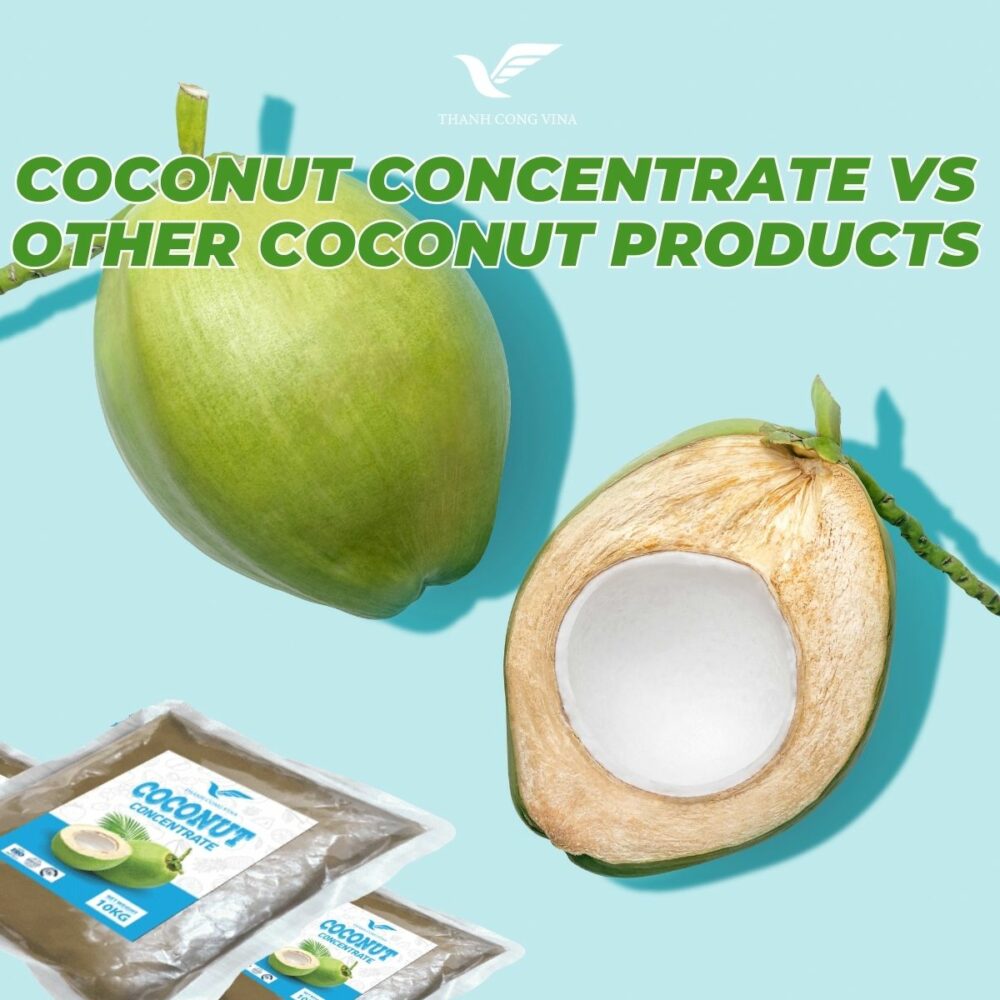
Coconut Concentrate vs Other Coconut Products
To understand the unique role of coconut concentrate, it is important to distinguish it from similar products:
-
Coconut Water: Clear liquid inside young coconuts, hydrating but not creamy.
-
Coconut Milk: Blend of coconut meat and water, less dense than concentrate.
-
Coconut Cream: Thicker than milk but still not as rich as concentrate.
-
Coconut Oil: Pure fat extracted from coconut, lacking fiber and protein.
At Thanh Cong Vina IEP CO., LTD, Coconut concentrate combines the benefits of flavor, creaminess, and nutrients, making it more versatile than any single coconut product.
The Future of Coconut Concentrate in Food Innovation
With sustainability, plant-based nutrition, and clean-label trends dominating the food industry, coconut concentrate is set to play an even greater role in future product development. Innovative applications include:
-
Plant-based cheese alternatives
-
Functional beverages infused with adaptogens
-
High-protein coconut-based snacks
-
Keto and paleo-certified coconut products
As technology advances, new processing methods may enhance shelf stability, nutritional retention, and flavor versatility, expanding the potential of coconut concentrate even further.
Conclusion
Coconut concentrate is more than just a tropical ingredient—it is a multifunctional powerhouse in the food industry. From beverages and desserts to sauces and nutrition products, its ability to deliver flavor, texture, and health benefits makes it an indispensable ingredient for modern manufacturers.
As consumer demand for natural, plant-based, and nutrient-rich foods continues to grow, coconut concentrate is positioned to become a cornerstone of food innovation. For companies like Thanh Cong Vina, specializing in coconut and fruit-based products, coconut concentrate represents both a business opportunity and a chance to meet the evolving needs of health-conscious consumers worldwide.

